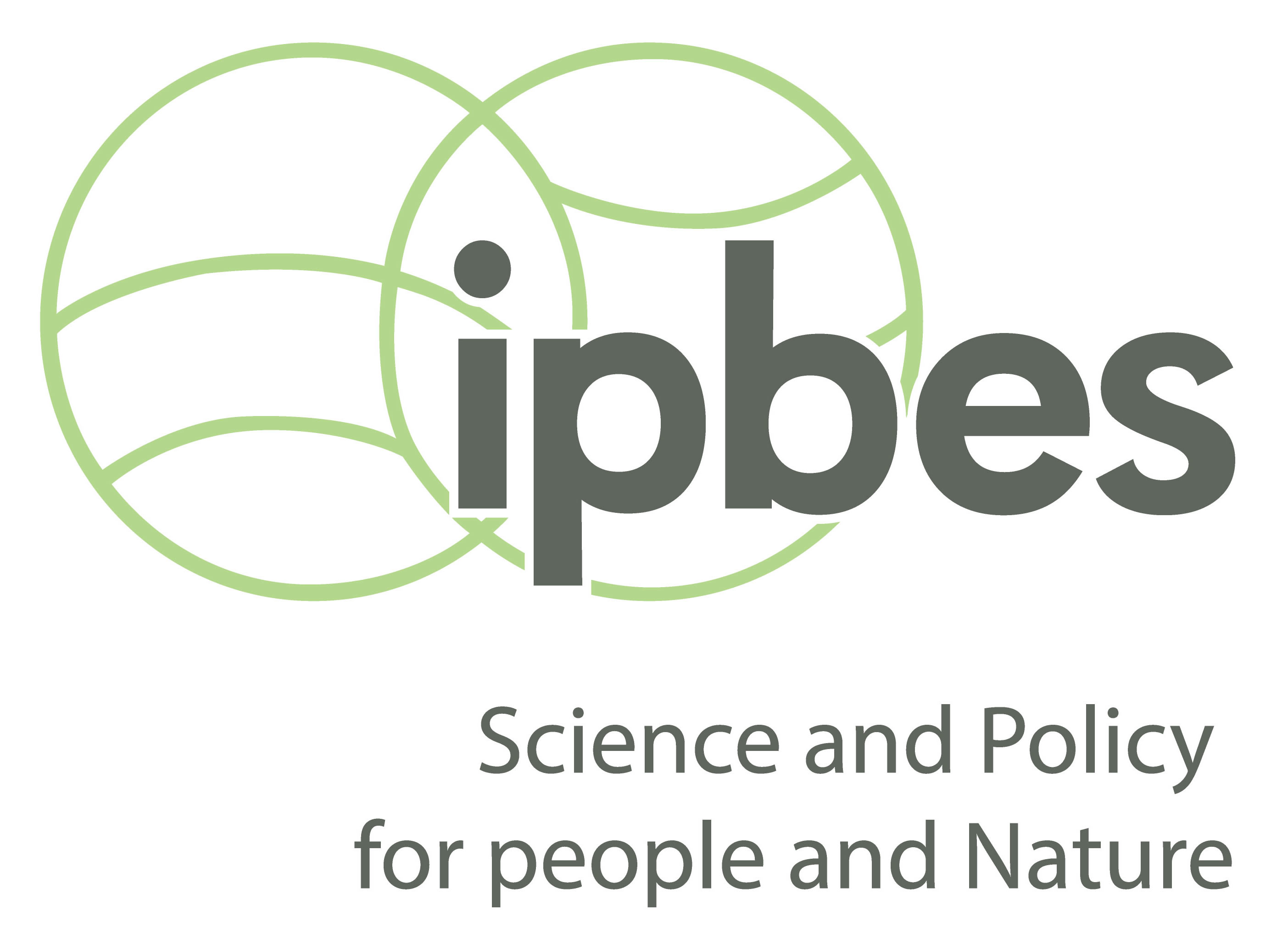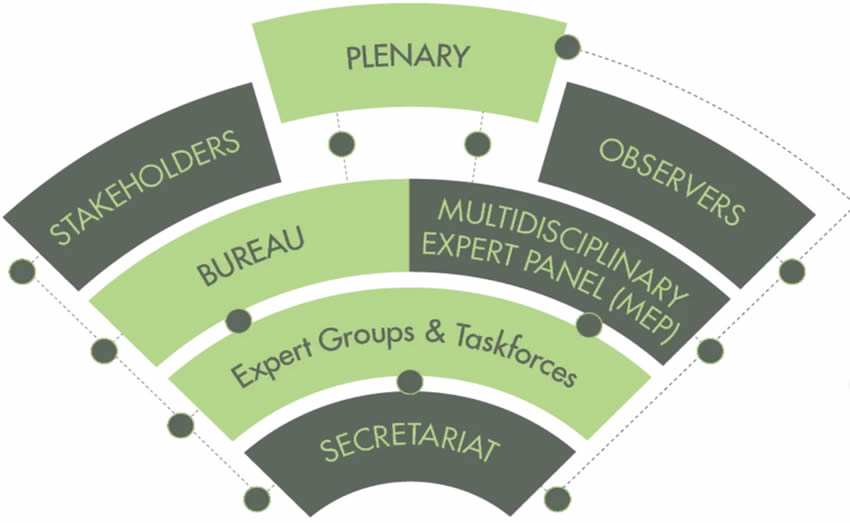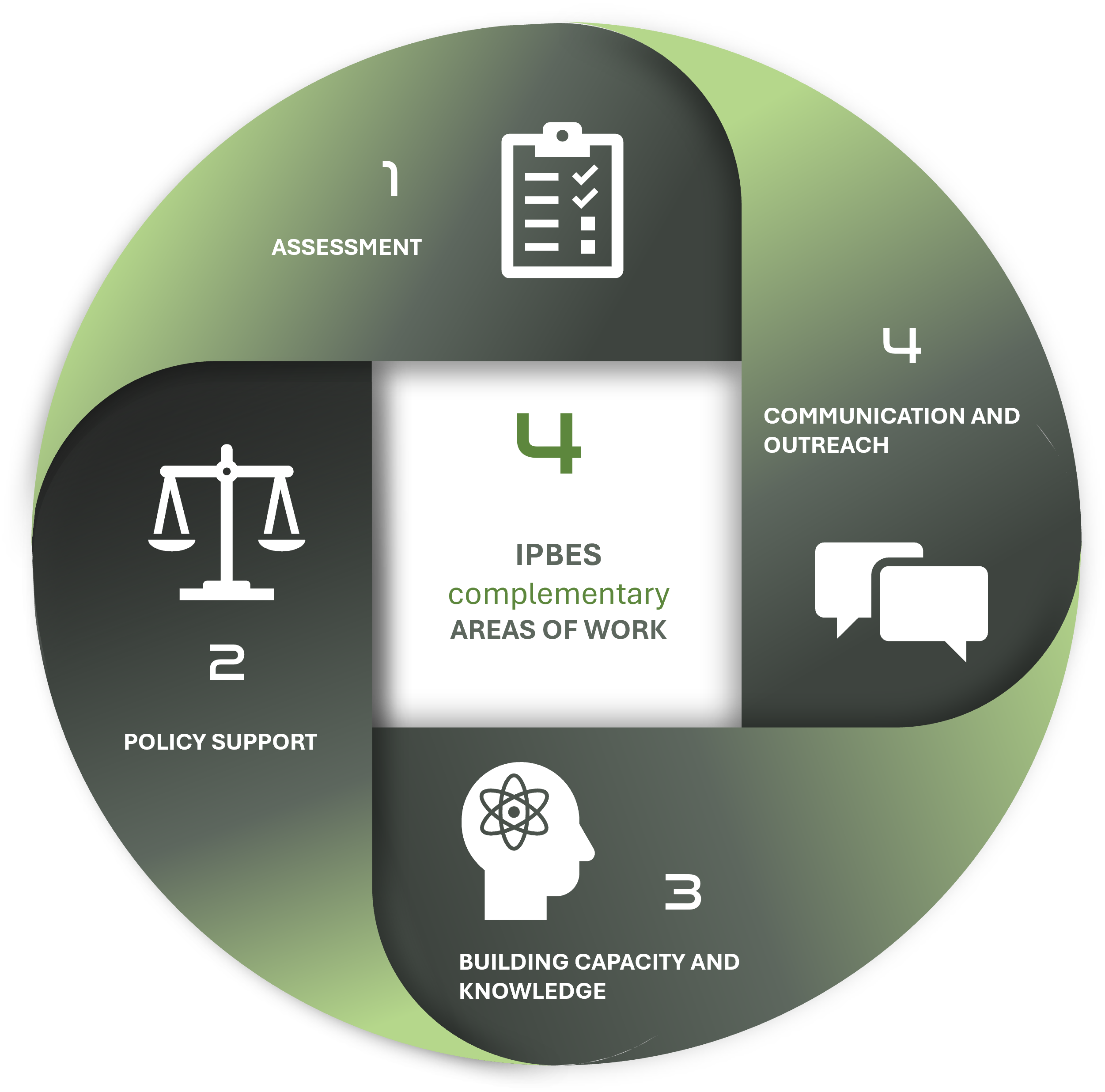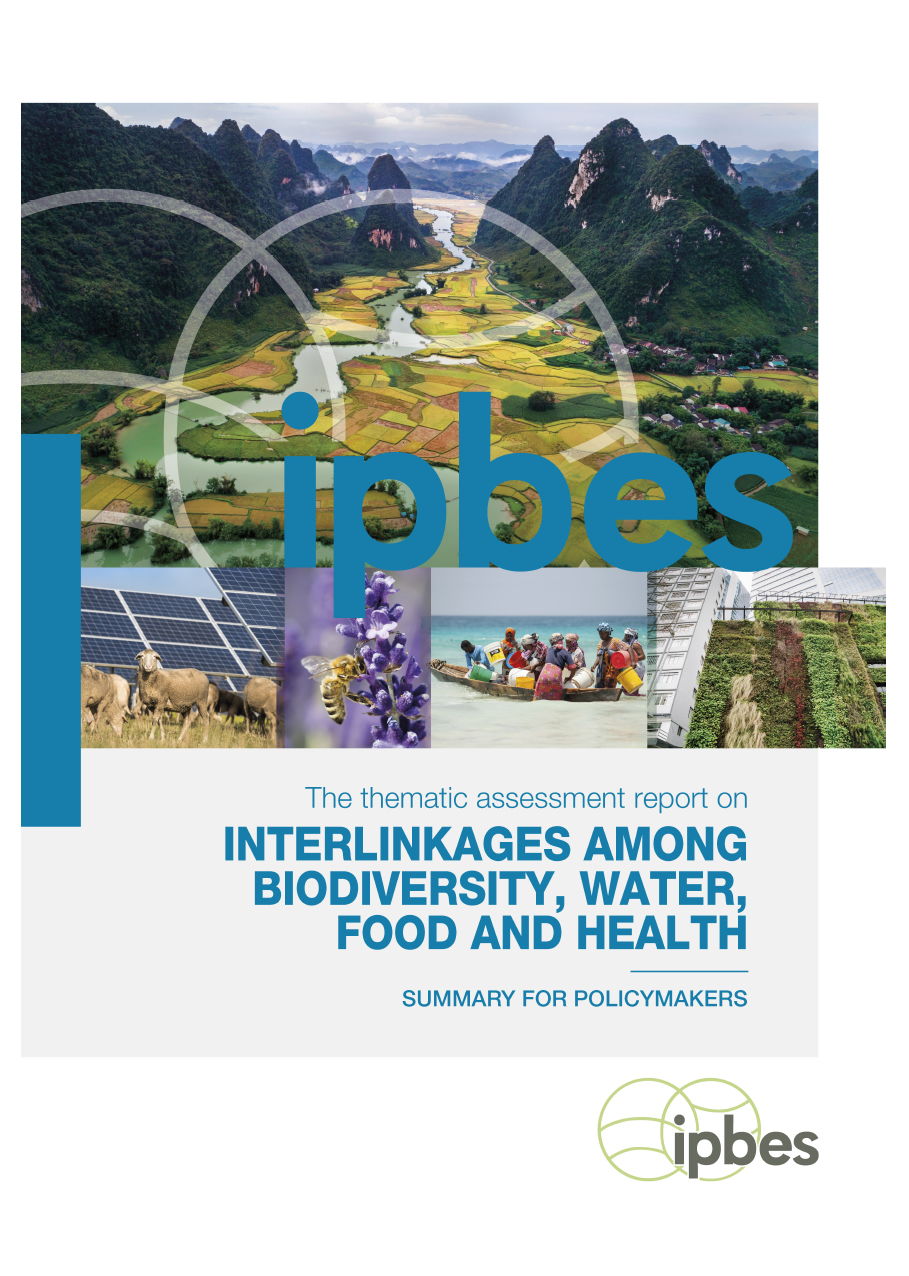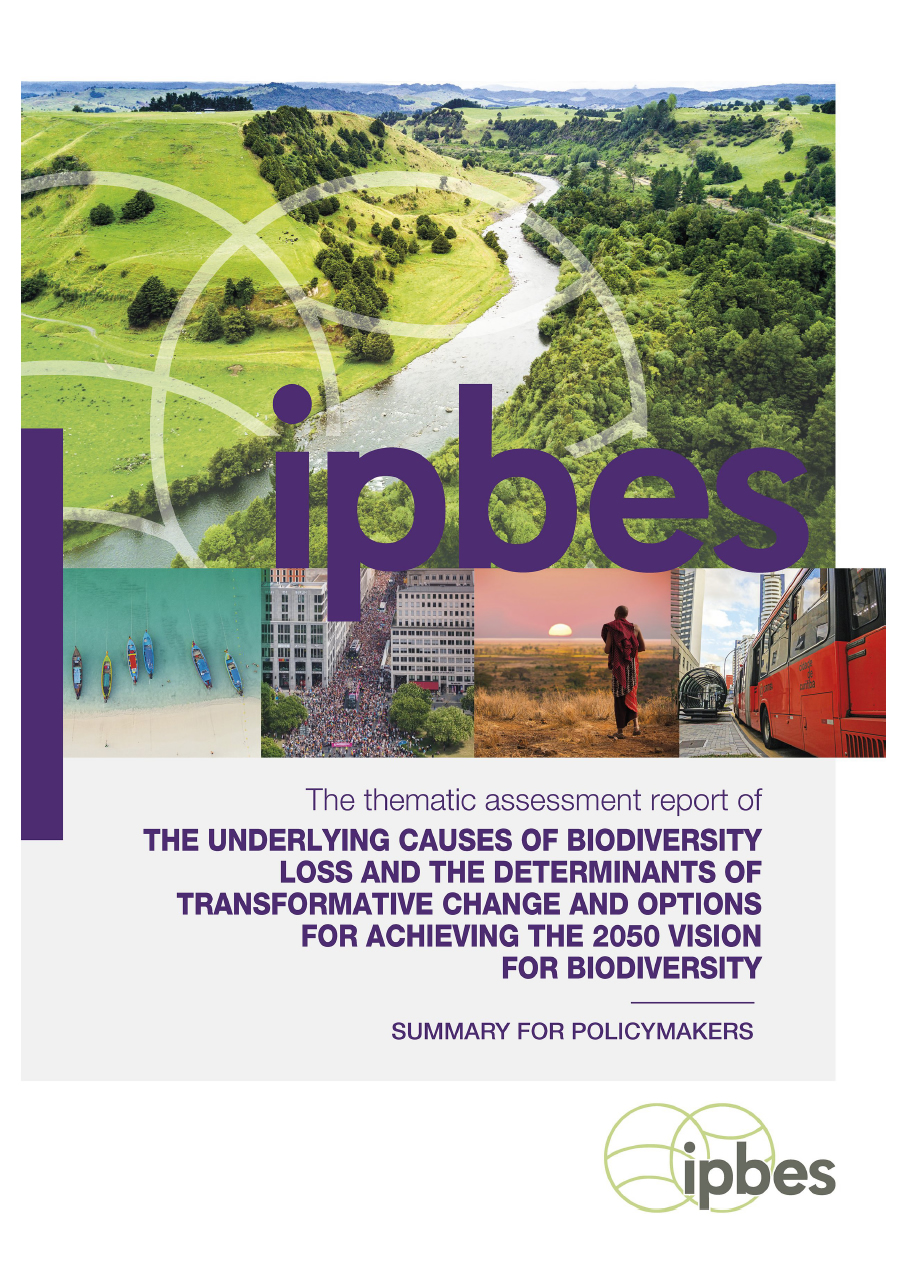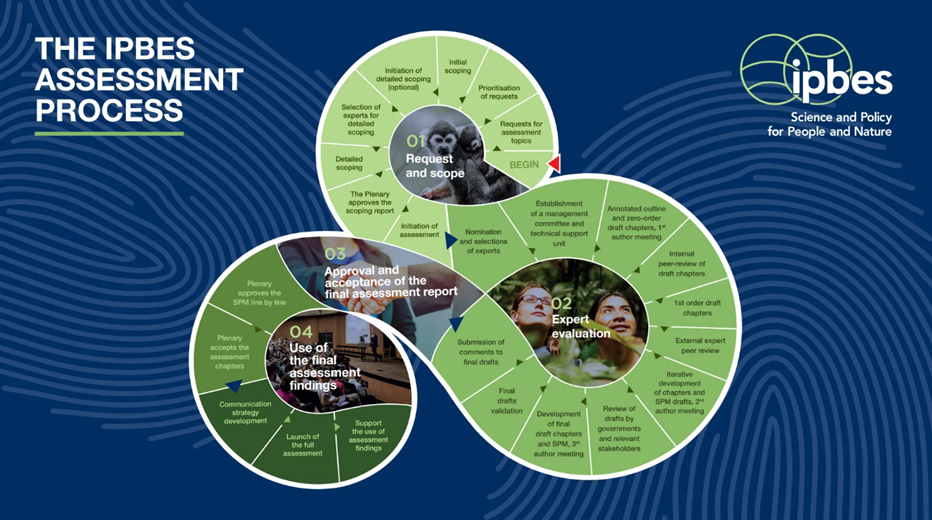INTERGOVERNMENTAL SCIENCE-POLICY PLATFORM ON BIODIVERSITY AND ECOSYSTEM SERVICES (IPBES)
BACKGROUND
IPBES is an independent intergovernmental body It is not a United Nations body It serves as an interface between the scientific community and policy makers aimed at strengthening the use of science in policy making for the conservation and sustainable use of biodiversity, long-term human well-being and sustainable development.
The platform was founded in Panama City, on 21 April 2012 by 94 governments and was officially opened in the UN Campus Bonn in July 2014. As part of its main function, the IPBES constantly assesses the state of biodiversity and of the ecosystem services, it provides to society. Currently, the platform has 147 member states of which South Africa became a member in 2012.
IMPORTANCE OF IPBES
The importance of IPBES is centred around biodiversity and nature’s benefits to people which underpins almost every aspect of human development and are key to the success of the new sustainable development goals (SDGs). Biodiversity and nature help to produce food, clean water, regulate climate and even control disease.
Yet, they are being depleted and degraded faster than at any other point in human history. IPBES is unique in that it harnesses the best expertise from across all scientific disciplines and knowledge communities to provide policy-relevant knowledge and to catalyse the implementation of knowledge-based policies at all levels in government, the private sector and civil society.
IPBES PLENARY STRUCTURE
The PLENARY: governing body which is made up of representatives of IPBES member states.
OBSERVERS: any state not yet a member of IPBES, the Convention on Biological Diversity (CBD) and other biodiversity-related conventions, related UN bodies; as well as many other relevant organisations and agencies.
The BUREAU: comprising IPBES chair, four vice-chairs and five additional officers who oversee administrative functions.
MULTIDISCIPLINARY EXPERT PANE (MEP): five expert participants from each of the five UN regions, overseeing all scientific and technical functions.
STAKEHOLDERS: all contributors to and end-users of the IPBES outputs.
EXPERT GROUPS and TASKFORCES: selected scientists and knowledge holders carrying out the IPBES assessments and other deliverables.
SECRETARIAT:
Ensures the efficient functioning of IPBES through support to the plenary, bureau and MEP, as well as implementing the platform's work and administrative functions. Led by the Executive Secretary of IPBES, Dr. Anne Larigauderie. The headquarters of the secretariat is hosted in Bonn by the Federal Government of Germany.
ENGAGE WITH IPBES PLENARY
Contributing as a nominated expert to our ongoing assessments – as an author, editor or reviewer. | Supporting our capacity and knowledge building work by contributing expertise, data or other resources. | Serving as a regional or subregional communication and outreach partner. | Coordinating a sectoral or industry-specific network of stakeholders engaging with IPBES. | Participating in the IPBES Young Fellows Programme.
REGISTER AS AN IPBES STAKEHOLDER. It is free and will ensure you receive regular information about the work of IPBES as well as opportunities to get involved. To register go to www.ipbes.net/stakeholders
IPBES COMPLEMENTARY AREAS OF WORK
1. ASSESSMENT
Assessment on specific themes, methodological issues, and at both regional and global levels.
2. POLICY SUPPORT
Identifying policy related tools and methodologies, facilitating their use, and catalysing their further development.
3. BUILDING CAPACITY AND KNOWLEDGE
Identifying and meeting the priority, capacity, knowledge and data neds of our member states, experts and stakeholders.
4. COMMUNICATION AND OUTREACH
Ensure the widest reach and impact of their work.
IPBES THEMATIC ASSESSMENT
THEMATIC ASSESSMENT REPORTS ADOPTED AT IPBES 11TH PLENARY
The eleventh (11th) session of the Plenary IPBES was held in Windhoek, Namibia from 09 – 16 December 2024. The purpose of the meeting was to negotiate positions for the purpose of making decisions on the following key agenda items:
1. Report on the executive secretary on progress in the implementation of the rolling work programme up to 2030.
2. Financial and budgetary arrangements for the platform.
3. Assessing knowledge: Thematic assessment of the interlinkages among biodiversity, water, food and health (nexus assessment). | Thematic assessment of the underlying causes of biodiversity loss and the determinants of transformative change and options for achieving the 2050 vision for biodiversity (transformative change assessment). | Scoping report for a second global assessment of biodiversity and ecosystem services. | Engagement with the Intergovernmental Panel on Climate Change.
4. Building capacity, strengthening knowledge foundations and supporting policy.
5. Improving the effectiveness of the platform.
IPBES THEMATIC ASSESSMENT PROCESS
IPBES assessments go through a rigorous, peer-reviewed process that takes years to complete. Each assessment is compiled with a team of experts, fellows and task forces which need to be reviewed by stakeholders and approved by the plenary before publishing. The assessment process takes part in 4 steps. Each step is crucial for the assessments reports which need to approved at the plenary meetings.
IMPORTANCE OF THEMATIC ASSESSMENTS
IPBES thematic assessments aim to assess the state of knowledge on biodiversity and nature's contributions to people in support of sustainable development globally and regionally.
In addition to the abovementioned assessments, others also include: The global assessment - the overall scope of the assessment is to assess the status and trends with regard to biodiversity and ecosystem services, the impact of biodiversity and ecosystem services on human well-being and the effectiveness of responses, including the strategic plan and its Aichi biodiversity targets.
The LAND DEGRADATION AND RESTORATION ASSESSMENT covers the global status of and trends in land degradation, by region and land cover type; the effect of degradation on biodiversity values, ecosystem services and human well-being; and the state of knowledge, by region and land cover type, of ecosystem restoration extent and options. The assessment aims to enhance the knowledge base for policies for addressing land degradation, desertification and the restoration of degraded land.
ASSESSMENT REPORT ON POLLINATORS, POLLINATION AND FOOD PRODUCTION addresses the role of native and exotic pollinators, the status of and trends in pollinators and pollination networks and services, drivers of change, impacts on human well-being, food production of pollination declines and deficits and the effectiveness of responses to pollination declines and deficits. The assessment informs enhanced policy responses to declines and deficits in pollination by identifying policy-relevant findings for decision-making in government, the private sector and civil society, as well as helping to demonstrate how an essential ecosystem service contributes to the 2030 Agenda for Sustainable Development.
REGIONAL ASSESSMENT REPORT ON BIODIVERSITY AND ECOSYSTEM SERVICES FOR AFRICA focusses on thematic priorities, including the food-energy-water-livelihood nexus; land degradation, including climate-related risks such as desertification and silting; catchment to coast; biodiversity conservation and sustainable use; and invasive alien species.
THEMATIC ASSESSMENT ON INVASIVE ALIEN SPECIES AND THEIR CONTROL assessed the current status and trends of invasive alien species, their impacts, their drivers, their management, and policy options to address the challenges they pose. The assessment takes into account various knowledge and value systems including Indigenous and local knowledge.
NATIONAL FOCAL POINTS
To facilitate interaction between governments and IPBES between sessions of the plenary, each government has a designate one focal point for all IPBES activities. The DFFE is committed to international obligation with IPBES and has dedicated National Focal Points who act as a point of contact with IPBES. Important functions of IPBES focal points include:
1. Endorsement of nominees for, e.g., IPBES task forces and expert groups.
2. Arranging for the provision of integrated comments on drafts of scoping reports, assessments or other IPBES products, regarding the accuracy and completeness of the scientific, technical and/or socioeconomic aspects of the drafts, as Government review will typically be carried out among a number of departments and ministries.
The SOUTH AFRICAN NATIONAL FOCAL POINT is Mr Barney Kgope | e-mail: bkgope@dffe.gov.za and the secondary National Focal Point is Ms Tshifhiwa Munyai | e-mail: tmunyai@dffe.gov.za.
IPBES RESOURCES
USEFUL LINKS


